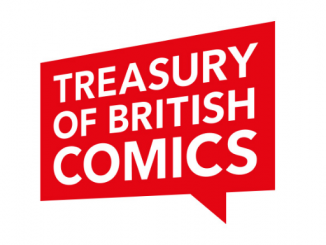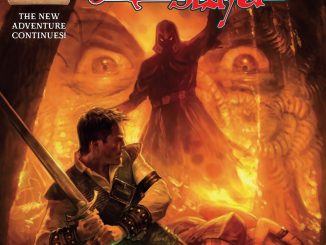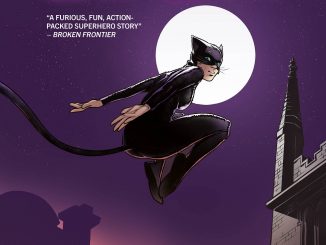Following all the other posts on 3MY about Apple’s censorship issues, Gizmodo have now joined in with an additional take:
In 1933, a judge ruled that James Joyce‘s Ulysses wasn’t obscene. In 2010, Apple has demanded editorial changes to a Ulysses graphic novel. And to another based on The Importance of Being Earnest. Here are their—only slightly NSFW—reasons:
In the case of Ulysses Seen, Apple demanded the removal of some (non-pornographic) nudity. And although illustrator Robert Berry offered several alternatives, such as pixelating the breasts or covering them with fig leaves, the only solution Apple deemed appropriate was the one seen above. Which basically abandons all of the original panel, sketched here:
Joyce fans will note the timing: we’re two days from Bloomsday, a celebration of all thingsUlysses.
In the case of a graphic novel of Wilde’s The Importance of Being Earnest, the objectionable nature of the content appears to be simply that two men were kissing. Meaning that this:
Can only be downloaded like this:
That’s after you’ve already told Apple that you’re 17 or older. Blacking out seven consecutive panels of a graphic novel makes that novel basically unreadable. And before you say that it’s because of the partial nudity, here’s a panel from Kick-Ass of a heterosexual couple that Apple didn’t censor:
We’ve been discussing Apple’s editorial censorship around here for a while. We’ve laid out why we think it’s unconscionable. There’s no need to beat that same drum all over again. But each time that censorship seeps into another category—in this case, classic literature—it’s worth noting. If only because it shows that the problem is real, and it’s getting worse instead of better. [The Big Money, NY Times]




